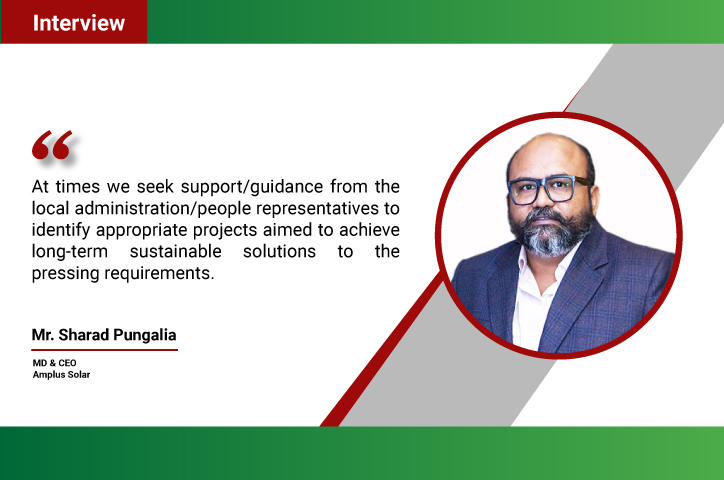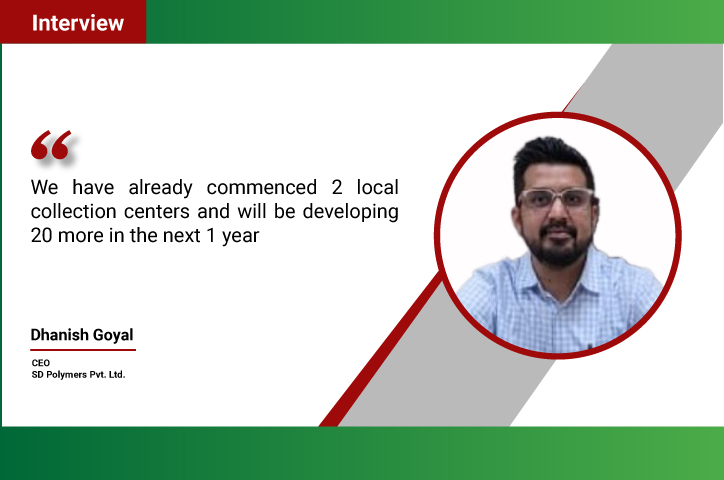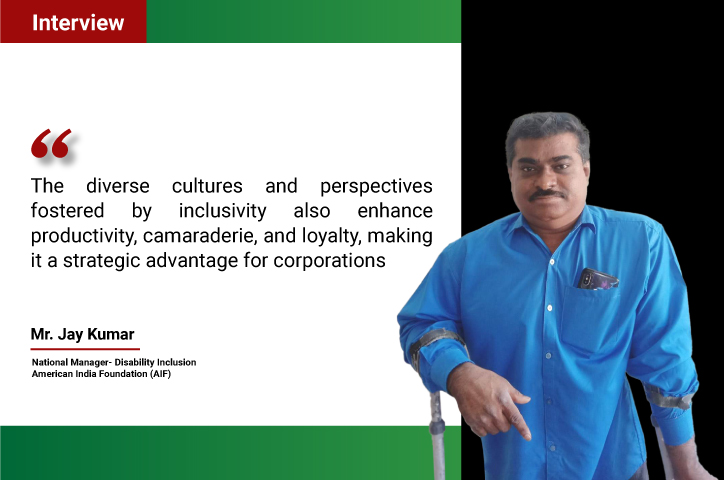Allcargo Logistics has spent 40% more than its prescribed CSR budget in the year 2019-20. Recently, the logistics company has been involved in a number of initiatives to support communities and the healthcare fraternity at a time when the country is witnessing multiple challenges owing to the COVID outbreak.
In this interview with TheCSRUnvierse, Dr Nilratan Shende, GM-CSR at Allcargo Logistics speaks on various COVID relief initiatives taken by his CSR team. As mode of execution of various CSR projects have also changed over the last six months, he shares the changing expectations of Corporates from implementation agencies who implement CSR projects on ground level. He also says that expansion of the applicability of COVID relief measures to respective CM relief funds would enable companies to spend CSR allocations meaningfully in respective local areas and states.
Scroll down to read the interview.
Interview with Dr Nilratan Shende, GM-CSR at Allcargo Logistics
Q: Allcargo Logistics has spent 40 % more than its prescribed CSR budget in the year 2019-20. How does your CSR vision sync with your business plans?
A: CSR has been Allcargo’s strategic focus area prior to legislating CSR Act 2013. Our CSR spirit is reflected not only through the financial allocations to our CSR initiatives beyond mandated limits but also through the kind of sustainable socio-economic impact that we could facilitate through our decentralised community participation at all levels of project cycle management. The basic lies in being responsible corporate citizen and thereby doing justice to hopes and aspiration of the people at the bottom of the pyramid
Q: Allcargo has been undertaking multiple CSR projects in child healthcare. How has your CSR implementation been impacted due to COVID pandemic?
A: Allcargo has always been a value-driven company with a social conscientiousness at its core. The outbreak of the covid-19 pandemic has only strengthened our resolve to expedite the inclusive development and empowerment of deprived sections of society through community specific social responsibility initiatives.
Through our CSR arm, Avashya Foundation, we have been in the forefront of providing relief support and livelihood sustenance to economically weaker communities who were grappling with an existential crisis in the pandemic-induced lockdown.
Avashya Foundation collaborated with a charitable trust to mobilise meals for daily wage earners, migrant labourers, persons with disabilities and families in need during the lockdown. Allcargo Logistics collaborated with Satya Sai Education and Health Trust to arrange free-of-cost heart surgeries and related treatments of 25 children from underprivileged families at the Sri Satya Sai Sanjeevani Hospital in Mumbai.
As part of the Allcargo Disha and Disha Career Seed projects, we provided scholarships to 450 students in Mumbai appearing for the Maharashtra Higher Secondary School Certificate (HSC) Examination for the academic year 2019-20. Of these, 26 students appeared for the exams and passed with flying colours. Avashya Foundation has also been instrumental in distributing PPE kits and grocery supplies to vulnerable families in the tribal belts of Maharashtra.
Q: What are the key emerging CSR opportunities and needs in the COVID scenario?
A: Disruption has emerged as the new normal in the wake of the COVID-19 pandemic outbreak which has been unprecedented in its global scale and spread. This presents a key opportunity for corporate enterprises to expand their CSR footprint and play a key role in restoring normalcy across the socio-economic spectrum through coordinated efforts with key stakeholders.
In times of economic uncertainties and trade volatilities when people from weaker sections of the society are facing loss of livelihoods, the immediate need of the hour is to ensure food security and livelihood sustenance for them. We see opportunities for companies to collaborate with state and central agencies to set up community kitchens which will serve subsidized food to poor people.
With overstretched healthcare machinery dealing with rising COVID-19 cases, we also feel that there is a need to upgrade the healthcare infrastructure in the country and ensure that people from all strata have access to advanced medical care and treatment. Towards this end, companies can allocate a substantial portion of their CSR funds to provide equipment like ventilators to hospitals and partner in building on-ground COVID-19 resilience for disadvantaged populations.
As teaching rapidly transits from classroom to online teaching modules, there is an immediate need to provide laptops and tablets to underprivileged children to ensure they study online.
Q: How your company’s focus area for CSR has evolved over the last 4-5 years?
A: Our CSR policy is integrated into our core value and goals and is not a mere policy mandate for us. Through initiatives aimed at empowering weaker communities and bringing them into the economic and social mainstream, we aim to exert a positive impact on the society and culture within which we operate. Over the last 4-5 years, we have aimed at broadening our focus areas and expanded our outreach towards weaker sections of the population to uplift them socially and economically.
Avashya Foundation has been instrumental in spearheading key development initiatives across focus areas like environment, skill development, education, disaster relief, healthcare, sports and women empowerment. Through our CSR efforts, we aim to bridge the huge social and economic divide among diverse population strata and create a sustainable future for generations to come.
Q: The CSR has fundamentally changed after the CSR was made mandatory by Companies Act 2013. It has been 7 years since then. What are your thoughts on CSR laws in India?
A: CSR laws in India have been a game-changer in making growth more inclusive and improving the lives of people from diverse socio-economic backgrounds. They have sensitized corporate enterprises in the country towards becoming ethically responsible and encouraging them to invest in building robust social and economic ecosystems. CSR laws have also been a key motivating factor for companies in engaging with members of local communities to roll out livelihood enhancement projects, promote gender equality, women empowerment and initiate programs for hunger and poverty eradication.
Q: What can be the changes in the current CSR laws that can help corporates in being more productive and effective in implementation of their CSR activities?
A: Companies have managed to create very good impact since the introduction of Company Act 2013 and effective implementation of CSR. It has managed to somewhat fill in the vacuum created by erosion of the welfare state since embracing globalization. Expansion of the applicability of COVID relief measures to respective CM relief funds would enable companies to spend CSR allocations meaningfully in respective local areas and states.
Secondly, smaller companies are not able to utilise money well. Expediting social stock exchanges wherein an overspent amount can be traded with the companies with surplus amounts would be helpful in catering to the challenge of unspent rightful CSR spent.
Lastly, in terms of scaling up impactful programmes and projects in partnership with state and central government can be considered in the interest of people. Such flexibility would be a very positive contribution for scaling impactful projects and thereby impact millions of lives positively.
Q: What are your expectations from your CSR implementation agencies in today’s changing scenario?
A: Our CSR implementation agencies/partners should express a firm commitment to hand-hold and support poor and vulnerable sections. We would also like them to collaborate with us in our skill-building initiative "Nipun" and help in rolling out skill enhancing programs and job-based training to underprivileged youth to amplify their employability chances and improve their standard of living. We want our CSR implementation agencies/partners to share a common vision, mission and purpose in creating an egalitarian society that enables inclusive development of people from all strata of society.
















